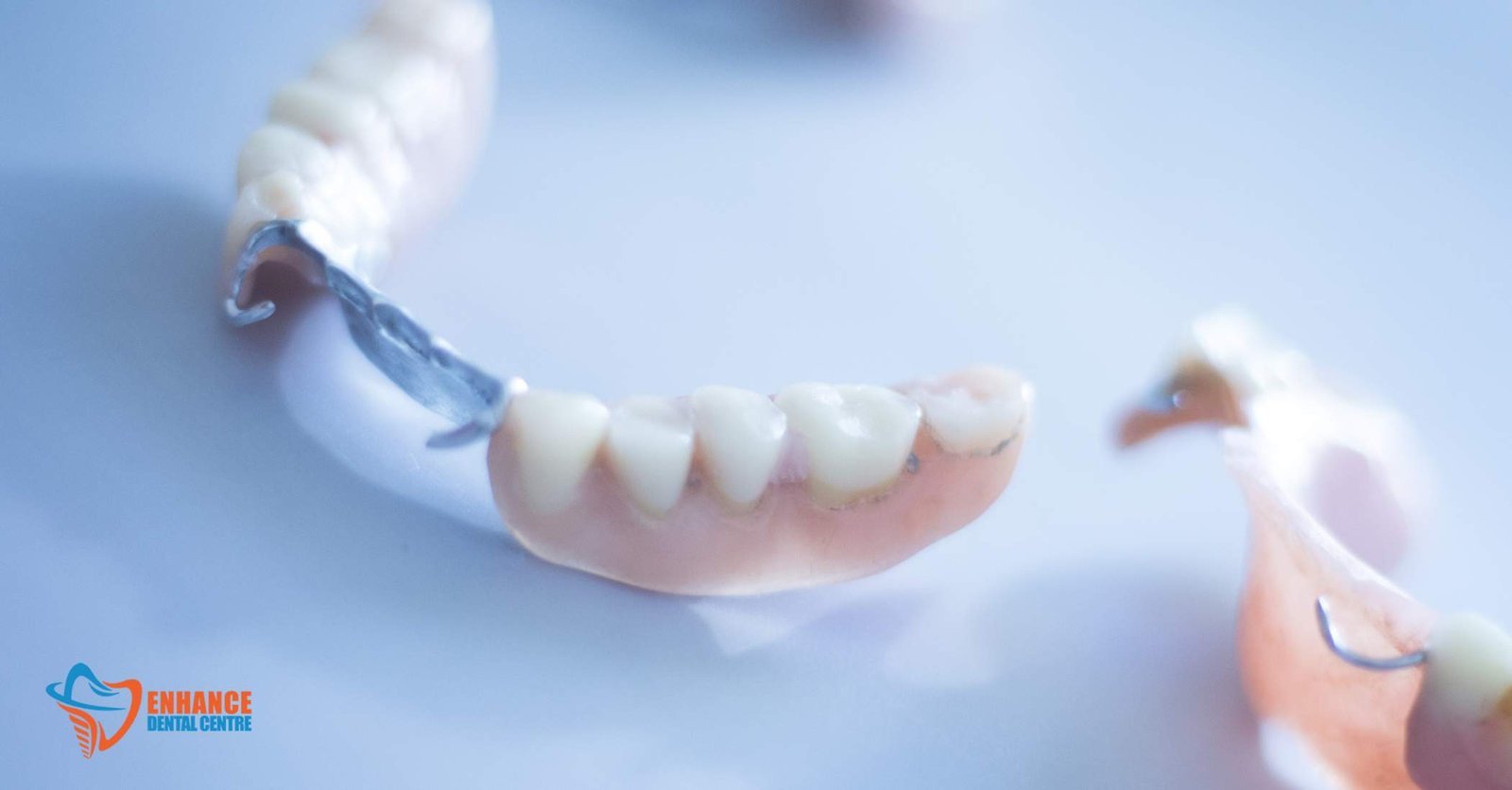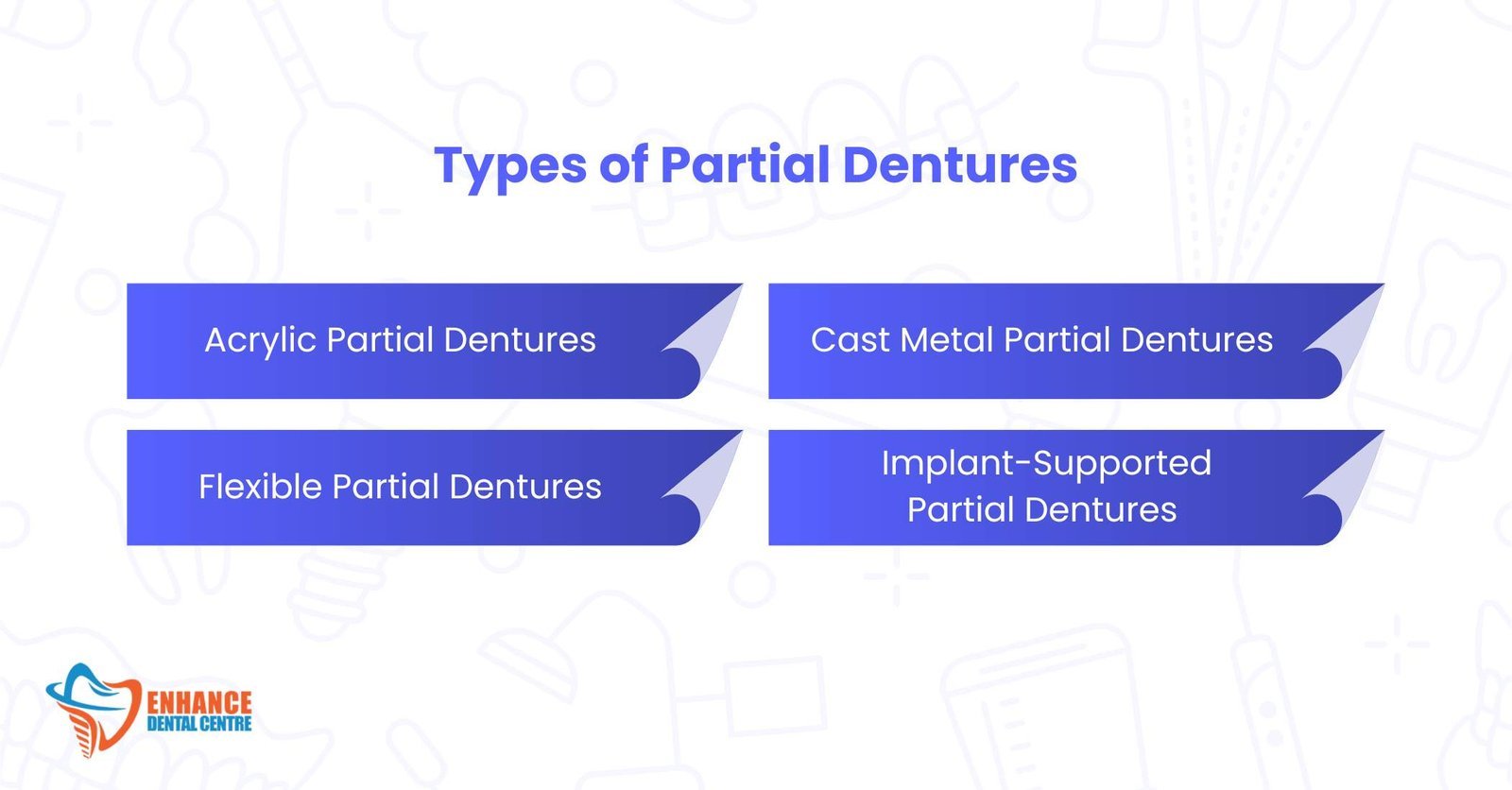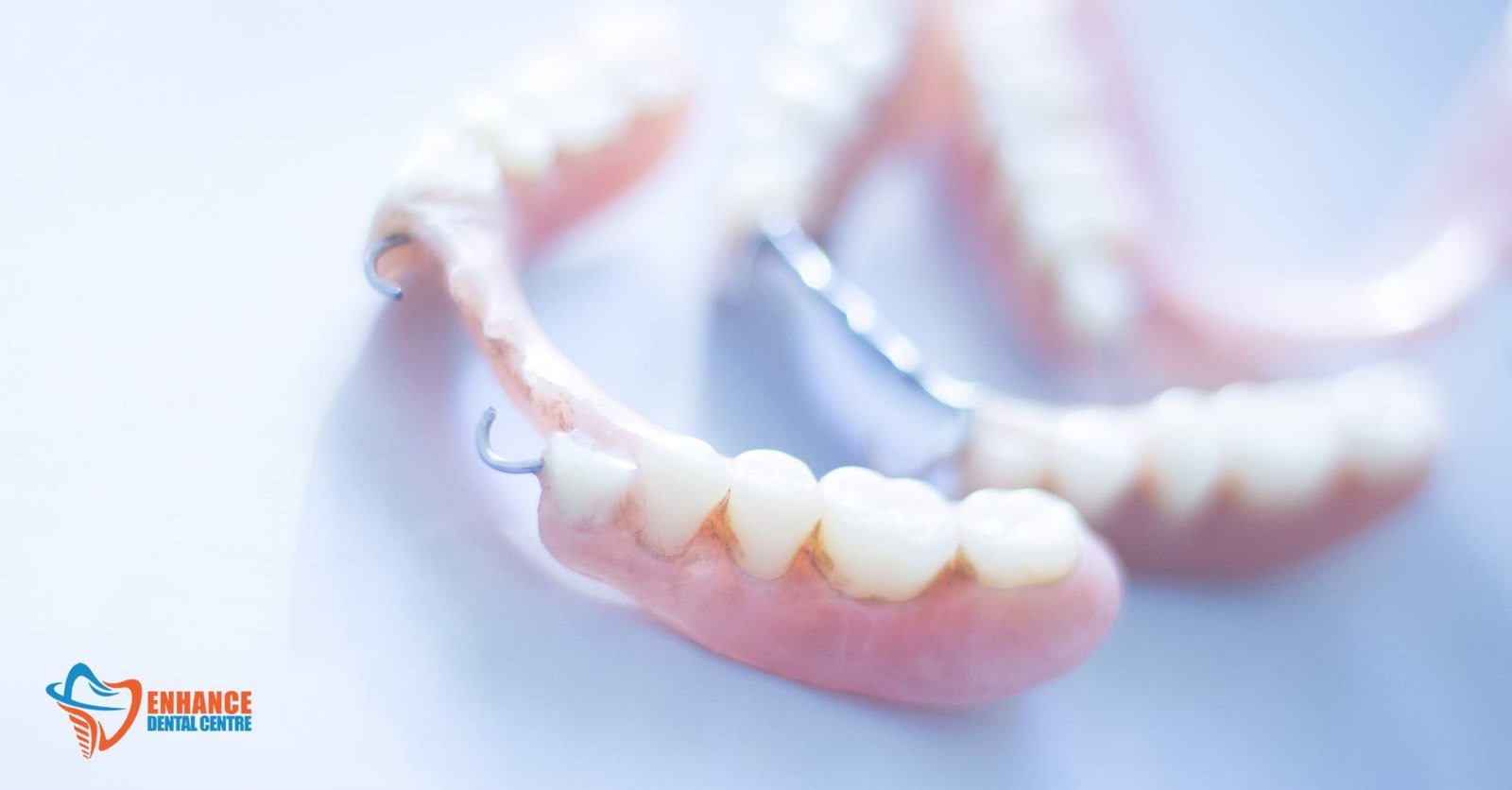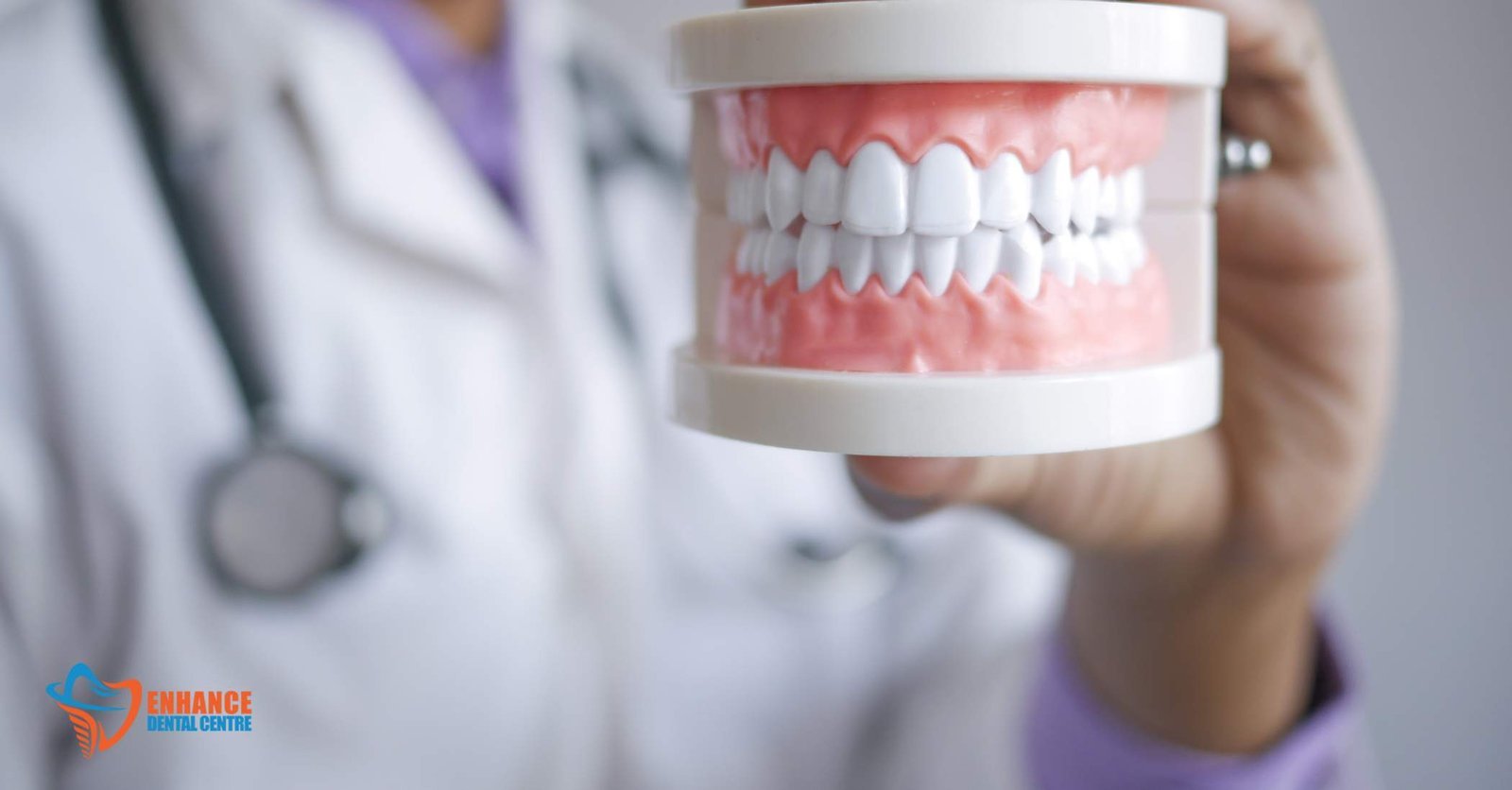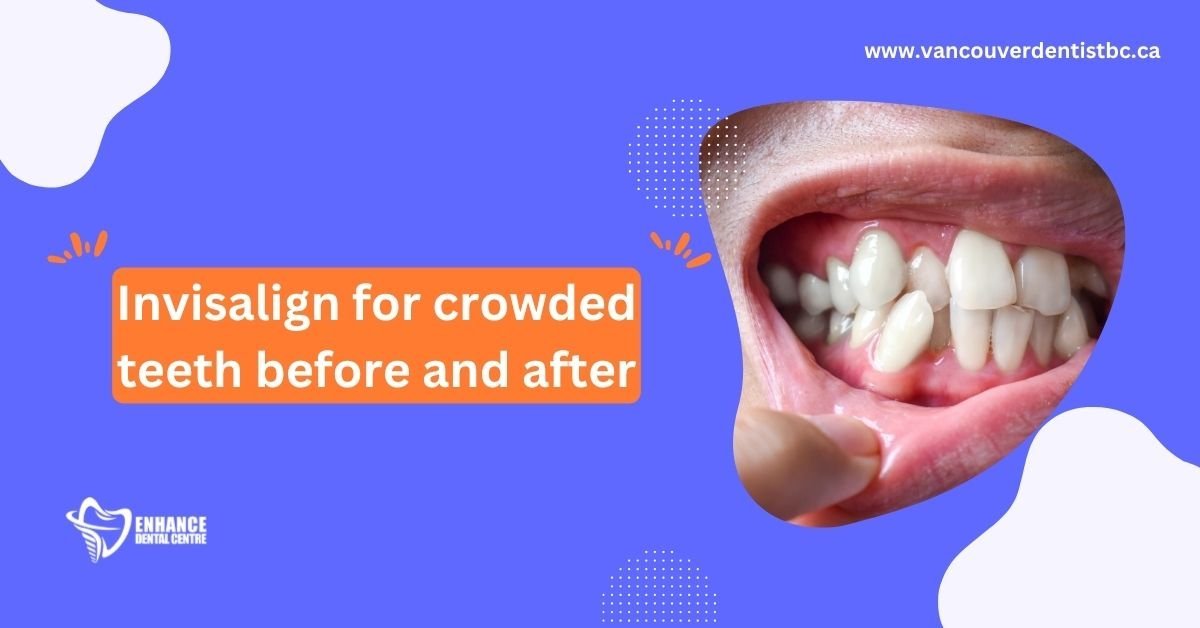Partial dentures are dental prosthetics designed to replace missing teeth in the upper or lower jaw, improving both functionality and appearance for individuals with gaps in their smiles.
Unlike full dentures, which replace an entire set of teeth, partial dentures are ideal for those who still have some natural teeth. They are also a less invasive and more affordable option compared to dental implants.
Though commonly associated with seniors, partial dentures can benefit individuals of all ages. Whether you’re struggling with chewing, speaking, or simply seeking to restore your smile, partial dentures offer a cost-effective and practical solution.
When partial dentures are needed?
Partial dentures are recommended for individuals who have lost one or several teeth but still retain healthy ones. They are an excellent solution for gaps caused due to loss of teeth by decay, injury, or aging.
These dentures restore both function and appearance, making them ideal for those who do not require full dentures or wish to avoid the invasiveness of dental implant surgery.
By filling the gaps left by missing teeth, partial dentures also prevent nearby teeth from shifting, which helps maintain proper oral alignment and overall dental health.
Benefits of Partial Dentures
Partial dentures offer several advantages for those looking to restore their smile and dental functionality:
- Improved Chewing Function
Missing teeth can make it difficult to chew properly. Partial dentures restore your ability to bite and chew, allowing you to enjoy a wider variety of foods. - Enhanced Speech
Gaps in your teeth can lead to speech difficulties. Partial dentures fill these spaces, improving articulation and making communication easier. - Aesthetic Improvements
By filling in gaps, partial dentures enhance the appearance of your smile, creating a fuller, natural look that boosts self-confidence. - Preservation of Remaining Teeth
Partial dentures prevent your natural teeth from shifting or tilting, helping maintain proper bite alignment and oral health.
Limitations of Partial Dentures
While partial dentures offer many benefits, there are some challenges you may encounter initially:
Sore Gums
It’s very common to experience gum soreness as your mouth adjusts. If discomfort persists or sores develop, professional adjustments may be necessary.
Excessive Saliva
An increase in saliva production is normal when you first wear partial dentures. This typically subsides as your mouth adapts.
Unnatural Feel
Partial dentures may feel bulky or strange at first. With time, this sensation should diminish as you become accustomed to them.
Difficulty Speaking
Speaking may initially be challenging, but practicing by reading aloud or conversing with others can help you adjust.
Chewing Difficulties
Eating with partial dentures takes practice. Start with soft foods and gradually transition to harder textures as you adapt.
Oral Hygiene
Food particles can become trapped around dentures, or on top of the denture surface, increasing the risk of gum problems or cavities. Regular cleaning of both dentures and natural teeth is essential.
Potential Damage
Partial dentures can be fragile and prone to breaking if mishandled. Metal attachments can also get bent or broken and may require costly repairs. Always handle them with care and seek professional repairs if needed.
Types of Partial Dentures
Partial dentures come in various types, each made from unique materials to suit individual needs. Your dentist will guide you in selecting the best option for your specific situation.
Acrylic Partial Dentures
Acrylic partial dentures are the most common type. They feature a pink acrylic base that mimics gum tissue and acrylic teeth.
- Advantages: Affordable, lightweight, and easy to adjust.
- Drawbacks: Less durable than metal options and may require more frequent repairs.
Cast Metal Partial Dentures
Cast metal dentures are known for their strength and durability. They have a metal base (often cobalt-chrome) with acrylic teeth attached.
- Advantages: Long-lasting and secure fit, thanks to metal clasps.
- Drawbacks: More expensive and may have visible metal parts. Clasps may also cause discomfort as they attach to other teeth and may increase the risk of gum recession.
Flexible Partial Dentures
Flexible partial dentures are made from a pliable resin that eliminates the need for metal clasps. The resin clasps attach comfortably to your teeth.
- Advantages: Comfortable, lightweight, and blend naturally with gums.
- Drawbacks: Higher cost and may stain over time if not properly maintained.
Implant-Supported Partial Dentures
Implant-supported dentures attach to titanium dental implants surgically placed in the jawbone.
- Advantages: Exceptional stability, secure fit, and jawbone preservation.
- Drawbacks: Requires surgery and is typically the most expensive option, though it offers the best long-term benefits.
How to Choose the Right Partial Dentures?
Selecting the right partial dentures involves evaluating several key factors to ensure they meet your needs:
Number of Missing Teeth
The type of partial denture you need depends on the number and location of missing teeth. For multiple adjacent gaps, durable options like cast metal dentures are ideal. For smaller gaps, flexible or acrylic dentures may be sufficient.
Budget
Costs vary based on materials, design complexity, and customization.
- Cast Metal Dentures: More expensive but highly durable.
- Acrylic Dentures: Affordable but may require frequent adjustments or replacements.
Striking a balance between cost, durability, and function is essential.
Oral Health
Your dentist will assess the condition of your remaining teeth and gums.
- Weak teeth may require dentures with better support.
- Unhealthy gums should be treated before fitting dentures to ensure long-term success.
Procedure for Getting Partial Dentures
The process of obtaining partial dentures typically involves the following steps:
- Consultation and Assessment: Your dentist evaluates your oral health and discusses your treatment goals to determine the best denture option for you.
- Impressions or Detailed Digital Scan: Custom molds or scans of your teeth and gums are taken to ensure the dentures fit properly.
- Fabrication: A dental lab creates the partial denture, carefully matching it to your natural teeth for a seamless appearance.
- Fitting and Adjustments: You try on the denture, and your dentist makes any necessary adjustments to maximize comfort and functionality. These adjustments may take multiple appointments.
- Final Placement: The completed denture is placed, and you receive detailed care instructions to maintain its longevity and performance.
By following these steps and collaborating with your dentist, you can achieve a natural-looking and functional smile. For more information or personalized guidance, feel free to contact us.
Care and Maintenance of Partial Dentures
Proper care of your partial dentures is essential to maintain their function, extend their lifespan, and support your overall oral health. Regular cleaning and addressing potential issues promptly can prevent problems and keep your dentures in optimal condition.
Follow these simple steps to keep your partial dentures clean and hygienic as a daily routine:
- Handle With Care: Remove your dentures carefully to avoid dropping or damaging them.
- Rinse Thoroughly: Use lukewarm water to rinse away loose food particles and debris. Avoid hot water, which can warp the dentures.
- Clean Gently
- Apply a small amount of denture cleaner or mild dish soap to a soft-bristled toothbrush.
- Avoid abrasive cleaners or toothpaste, as they can scratch the surface.
- Brush all areas, including the teeth, clasps, and any metal or acrylic sections, focusing on areas prone to food buildup.
- Soak Overnight: Place your dentures in a cleaning solution or a mix of water and vinegar to remove stains and bacteria. This step also helps them retain their shape.
- Care for Your Mouth: While your dentures are out, use a soft-bristled toothbrush to clean your gums, tongue, and palate. This helps remove plaque and promotes healthy oral tissue.
Longevity Tips
Taking proper care of your partial dentures ensures they last longer and stay comfortable. Follow these tips to maintain their condition:
Handle With Care
Partial dentures, especially those made of acrylic or flexible materials, are fragile. Be gentle when inserting, removing, or cleaning them to avoid damage.
Regular Dental Check-Ups
Changes in your gums and teeth over time can affect denture fit. Regular dental visits ensure proper adjustments for ongoing comfort and function.
Avoid Hot Water
Cleaning or soaking dentures in hot water can cause warping. Always use lukewarm or cool water for rinsing or soaking.
Remove Dentures When Sleeping
Take dentures out at night to rest your gums and reduce pressure on your natural teeth. This also helps maintain their shape and fit.
Stay Hydrated
Drinking plenty of water supports oral health and prevents dry mouth, which can impact denture fit and comfort.
Common Issues and Troubleshooting
Partial dentures are built to last, but issues can arise over time and depending on how long you have them, they will eventually require replacement. Here’s how to handle common problems effectively:
- Loose Dentures: Changes in gum or bone structure may lead to a loose fit. Visit your dentist for adjustments, relining, or refitting to restore comfort and functionality.
- Discomfort or Sores: Poor fit or irritation can cause discomfort or sores. Ensure your dentures are professionally fitted. Temporary relief may be achieved with soothing gels or a saltwater rinse.
- Damage to Dentures: Avoid attempting DIY repairs, as this can worsen the damage. Always seek professional assistance for repairs to maintain their integrity.
- Odour or Stains: Food buildup or bacterial growth may lead to odour or stains. Regular brushing and soaking in a denture cleaning solution help keep them fresh and clean.
- Difficulty Speaking or Eating: Improper fit or an adjustment period can make speaking or eating challenging. Practice regularly and consult your dentist for adjustments if the problem persists.
How much do partial dentures cost?
The cost of partial dentures in Canada varies based on factors such as materials, design complexity, and location.
Cost Breakdown:
- Basic Partial Dentures: Approximately $650 to $1,000 per arch.
- Mid-Range Partial Dentures: Around $1,000 to $2,000 per arch.
- Premium Partial Dentures: Typically $2,000 to $4,000 per arch.
Factors Influencing Cost:
- Material: Acrylic dentures are generally more affordable, while metal or flexible materials (like Valplast) tend to be more expensive.
- Number of Teeth: Replacing multiple teeth can increase the overall cost.
- Lab costs and quality: Reputable and established labs will generally charge more as they deliver higher quality and materials, whereas some labs may use cheaper materials.
- Location: Prices can vary by province and dental clinic. For instance, partial dentures in Ontario may range from $600 to $2,500 per arch.
- Dental Insurance: Some insurance plans may cover a portion of the cost, reducing out-of-pocket expenses.
- Adjustments and Repairs: Future adjustments or repairs may incur additional costs.
It’s highly advisable to consult with a dental professional to obtain an accurate estimate tailored to your specific needs and circumstances.
Conclusion
Partial dentures offer a cost-effective and functional solution for those with missing teeth, improving chewing, speaking, and the overall appearance of your smile. With options like acrylic, metal, and flexible dentures, there’s a type to suit various needs and budgets.
At Enhance Dental Centre, our experienced team is here to provide personalized guidance and care, ensuring you find the best fit for your oral health and lifestyle. Take the first step toward a healthier, more confident smile today—schedule your consultation with us!


